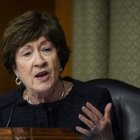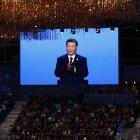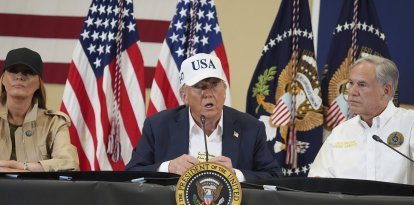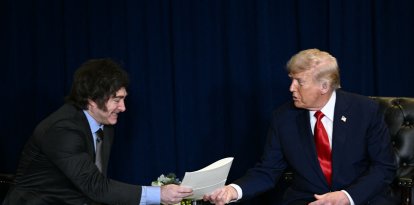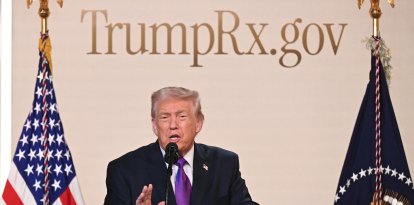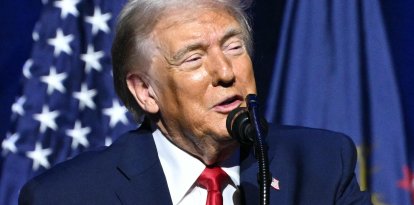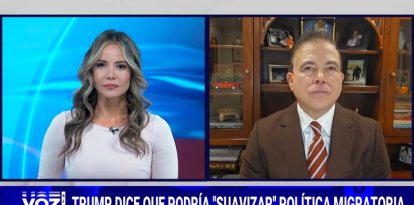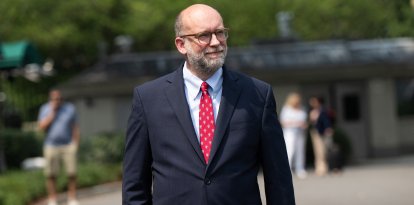Liberation Day: Trump imposes tariffs on all imports, with some heavier ones on certain countries “unfair” to U.S.
"This is one of the most important days in American history. It is our declaration of economic independence," said President Trump.

Donald Trump
At an event held in the White House Rose Garden, President Donald Trump announced the imposition of reciprocal tariffs on US trading partners. The measure was unveiled on Wednesday, April 2, a date Trump called American "Liberation Day."
"This is one of the most important days, in my opinion, in American history. It's our declaration of economic independence," the president said, stressing that "for years, hardworking American citizens were forced to sit on the sidelines as other nations got rich and powerful, much of it at our expense." He added that now is the time to put an end to that situation.
The new tariffs and their international reach
During his speech, Trump presented a poster showing the tariff rates and other trade barriers that different countries impose on US products, along with the reciprocal tariffs his administration plans to impose on imports from those same countries.
In China’s case, US products face 67% tariffs and other trade barriers, while the Trump Administration announced 34% on imports from that country. On the other hand, the European Union imposes 39% tariffs and trade barriers on US products, and Trump announced a new rate of 20%.
Vietnam sets a 90% tariff rate and other trade barriers on US products, while the US Administration will now impose 46% reciprocal tariffs. As for Japan, US products face 46% tariffs and trade barriers, and Trump's proposal is to impose 24% tariffs.
Meanwhile, India imposes 52% tariffs and other trade barriers on US products, and the Administration expects to apply 26% reciprocal tariffs. Another example is South Korea , which maintains 50% tariffs and other trade barriers on US products, while the US will now impose 25%.
In addition, the administration set a minimum base tariff of 10% for imports in general.
Trump stressed that these measures are part of his effort to level the playing field and protect US industry, which he said has been unfairly affected by these unequal practices.
Defense of productive sectors
Trump argued that this decision also seeks to protect US farmers and ranchers, who have faced high tariffs in foreign markets. He highlighted cases such as Canada, which imposes tariffs of up to 300 % on US dairy products, or Australia, which bans US beef while exporting billions of dollars worth of meat to the US.
“The United States can no longer continue with a policy of unilateral economic surrender... We have to take care of our people, and we're going to take care of our people first,” he assured.
Criticism of globalization
The president also lashed out at “globalists” and interest groups that have advocated trade agreements that hurt the national economy. “Never forget that every prediction our opponents made about trade for the last 30 years has been proven totally wrong (...) In my first term, they said tariffs would crash the economy. Instead, we built the greatest economy in the history of the world,” he said.





